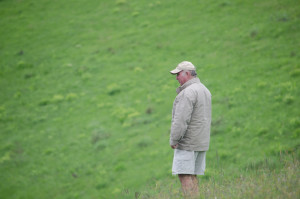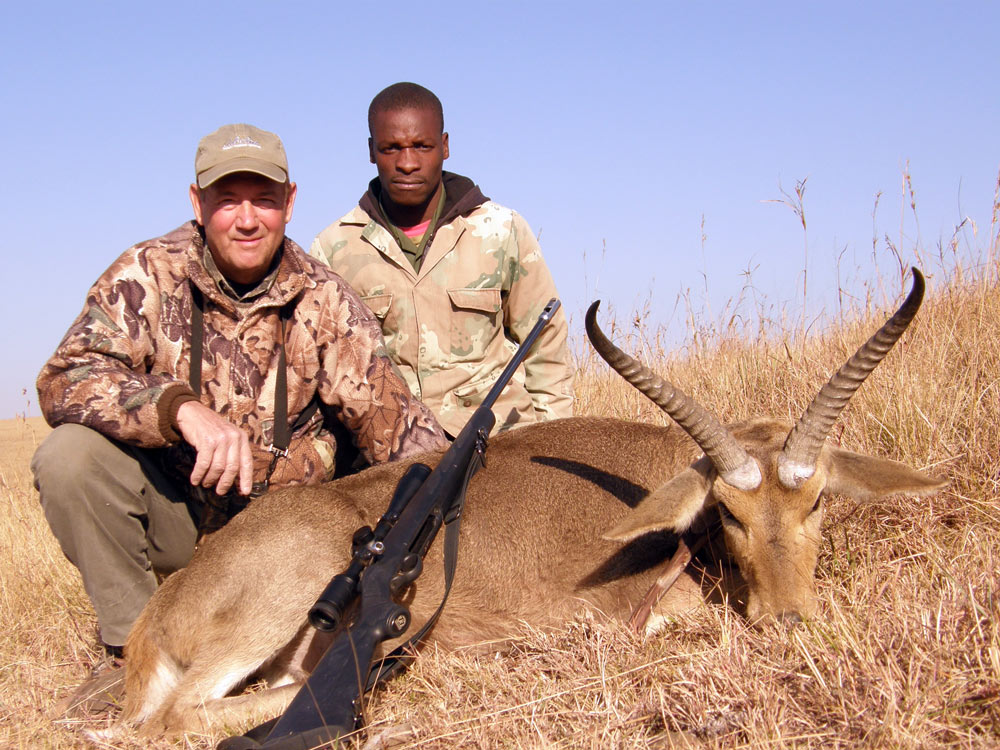The Next Chapter
with Watervale Safaris

Owner Harold (Mo) Lister
It is with great joy and pride that we can publish our very first blog post and revamped website for Watervale Safaris. Watervale Safaris has been operating as a hunting destination since 2001, with many conservation efforts along the way, lead by Mo Lister. In 2015 Mo Lister was awarded the ‘External Award for Individual’ by KZN Wildlife for his conservation efforts. Mo, owner of Watervale Safaris has through sheer hard work and passion expanded his three properties in the area. He is one of those people who know that the future health of our biodiversity lies in the hands of the broader public. Each and every person has their role to play. It is with that passion and drive for Wildlife and conservation that we now take 2016 ‘by the horns’ to further our conservation efforts and grow Nhlamvini Game Reserve and Watervale Safaris as an example of 21st century conservation at its best.

Trophy Hunting puts value to wildlife. This value has turned thousands of hectares of traditional farming (cattle, maize and cane) to what we see now as Nhlamvini Game Reserve. As the reserve grows with the growing market so to will more of these areas return to its natural state with its indigenous wildlife species in abundance.
At Watervale Safaris we are turning our attention to more than just one aspect of the Wildlife industry, to enable us to fund conservation efforts and also in community upliftment in the area. Our Wildlife in Africa is our single most important commodity, when utilized and managed correctly, it’s amazing what we will be able to achieve. Like many have realized in the last few years, there needs to be a business approach to wildlife ranching in South Africa, a business approach that will put value on our Wildlife and once our Wildlife regains its value, that is when you will see the populations boom and the natural wild areas return. In the course of centuries, farming and human population explosion has affected our wildlife tremendously. Those species of wild animals that competed with mans agricultural ventures and his living circumstances were, purposefully, eradicated by him, not only in Africa but every continent, every island and every corner of the earth throughout recorded history. Nowadays all extinctions are, more often than not, blamed on the extravagances of the olden-day hunters. This distorts the truth because, although excessive hunting may have contributed to many of these extinctions, the greater majority occurred for other reasons. In most cases wild animal extinctions were caused, incidentally, because- for example- agricultural expansion drastically changed the animals’ habitats.
The demise of the Passenger pigeon in the USA has been blamed on market-hunters (wildlife harvesters) that supplied nestling pigeons to the East Coast restaurants. The real cause of the Pigeon’s extirpation, however, was a massive expansion of agriculture in eastern United States towards the end of the 19th century. The Passenger Pigeon died out because its habitat- undisturbed and continuous deciduous woodland- was thus destroyed. Just as it was the expansion of agriculture that caused the extinction of the Blue Buck and the Quagga in South Africa. Interestingly, 26% of animal extinctions during the 20th Century have been attributed to domesticated cats, many of them feral cats and others the pets of respectable and responsible pet owners. In Australia feral cats wreak havoc on the continents small marsupials that have no natural defenses against this alien predator. Point I am trying to make here is that one cannot be too glib, when appointing blame for past extinctions, and if we are to avoid further losses we must learn from our past mistakes.
With the ever growing human population and all that comes with it, it is imperative that we leave space for our Wildlife. We need to apply well- balanced, responsible and appropriate approach to the practices of wildlife management. Modern Wildlife management must incorporate both protection, where it is appropriate, and conservation (sustainable wise- use), where that is possible. Above all, it must support the need for maintaining the earths rich biodiversity and that, in a nut-shell, is exactly what we at Watervale Safaris, is all about!
In 2016 Watervale Safaris will be entering the live sales market of wild game. We will be reintroducing more flagship species onto the reserve and we also see the start of expanding eco- tourism with the planning and building of “Watervale Lodge” to compliment the existing Oribi Bush Lodge. Through sustainable and ethical trophy hunting, game breeding, live sales and eco-tourism, Watervale Safaris is putting value to our wild animals and thus enabling us to expand, protect, educate and involve local communities in the protecting of our biodiversity.
We looking forward to sharing this journey with everyone over this platform in the months and years to come!
